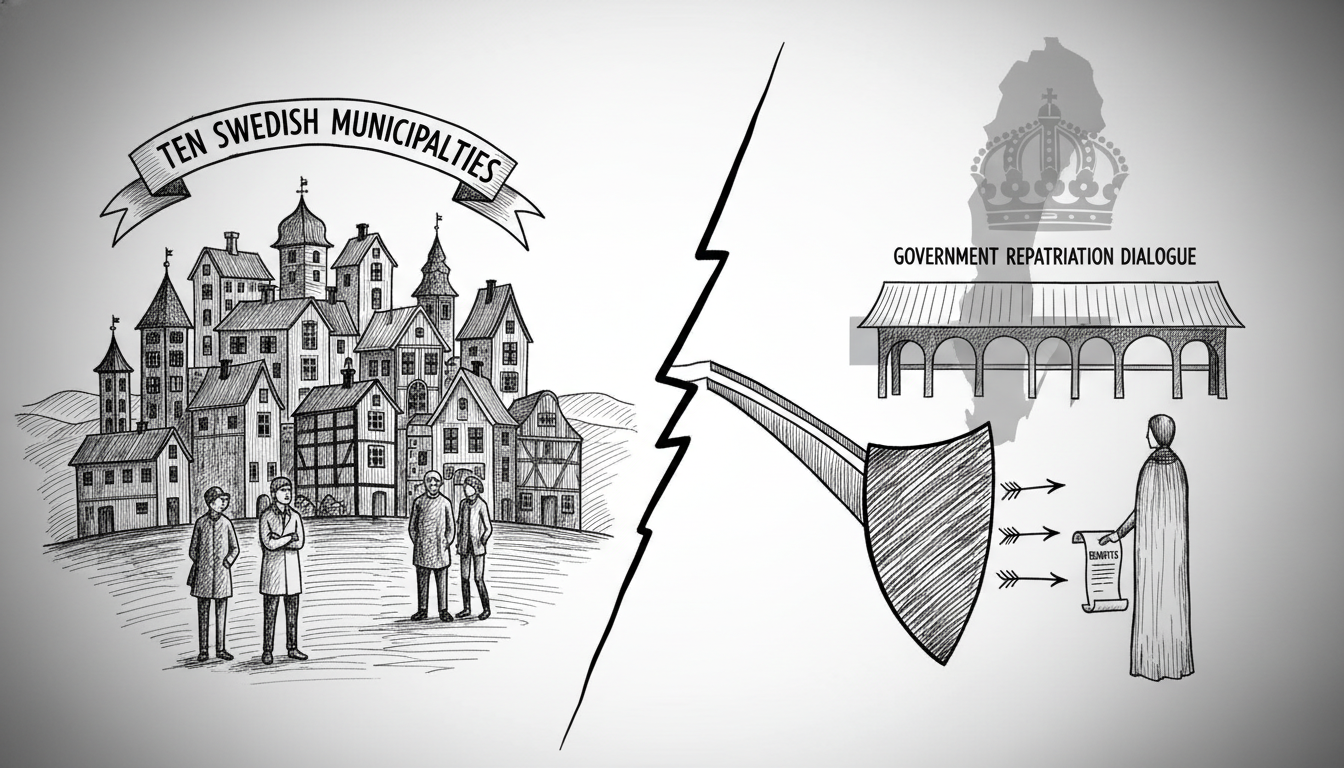Ten Swedish municipalities have refused to participate in government talks about increasing voluntary repatriation. The national coordinator invited all municipalities to discuss strengthening voluntary return programs. Municipal leaders expressed strong opposition to the proposal.
Malin Lauber, municipal councilor in Växjö, stated her position clearly. "Regardless of whether they come from Stockholm, Berlin or Mogadishu, I want them to stay here," she said in a statement. Växjö is one of the municipalities rejecting the dialogue invitation.
The government plans to implement increased repatriation benefits by year's end. Applications would be processed through the Swedish Migration Agency. A letter from national coordinator Teresa Zetterblad sparked the current controversy.
Why do municipalities oppose this initiative? Local leaders appear committed to maintaining their current immigrant populations. They view integration as preferable to encouraging departure.
The proposed benefit increase represents a significant policy shift. Sweden has traditionally focused on integration rather than repatriation programs. This marks a notable change in approach to migration management.
Municipalities hold substantial power over local integration efforts in Sweden's decentralized system. Their cooperation is crucial for national migration policies to succeed. The current standoff highlights tensions between local and national governance approaches.
What happens next? The government faces a challenge implementing its repatriation plans without municipal support. The year-end deadline for the benefit increase now appears uncertain given the resistance.

